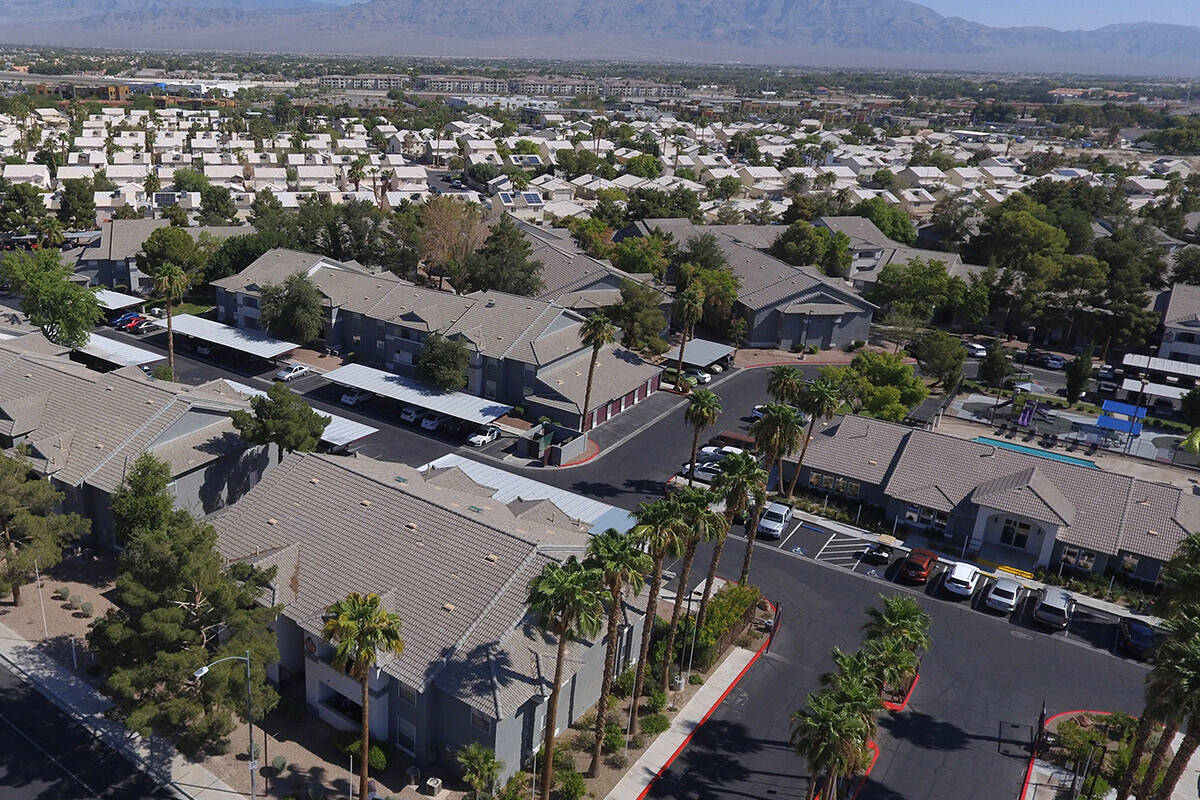Slow home sales to influx of Californians: Top 2023 stories in residential real estate
The word of the year when it comes to Las Vegas real estate has to be “inflation.” High interest rates — not seen since the beginning of the Great Recession in 2008 — were brought in by the Federal Reserve last year to stem runaway inflation, brought on by pandemic restrictions wreaking absolute havoc on the global economy. This put a serious damper on the national housing market, and Las Vegas was not immune to the pain.
Here are some of the best enterprising stories from the real estate beat in Las Vegas.
Las Vegas real estate on pace to have worst year since 2008
It’s tough to lead with such a negative story, but it’s impossible to ignore just how bad it was this year for home sales in the Las Vegas Valley. But it’s important to remember that the real estate world, Las Vegas included, had a field day during the pandemic, as a buying and selling boom was kicked off by rock bottom mortgage rates and a splurge of cheap cash injected into the market to try and help the economy get out of the pandemic.
It’s also important to remember that this is not the housing market of 2008, and most mortgage owners today are doing OK, sitting on low interest rates and a fair amount of equity. When those rates come up for renewal is another story, however for now, the cool down in sales is serving its purpose, to bring the market back to more of a healthy equilibrium, however painful it might feel for the industry.
Why does Wall Street want to buy your house?
This is a longstanding story that was born out of the housing market crash during the 2008 downturn. Wall Street backed hedge funds stepped in to buy up what was a housing wasteland. However, it didn’t stop there, as these multibillion-dollar firms saw a good investment strategy, and kept buying, turning single-family homes into permanent rental properties.
This story focuses on local real estate agents decrying this trend, as UNLV research estimates investors of all types may own as much as 15 percent of Las Vegas’ housing stock. You know when real estate agents — commission-driven and bottom line orientated — are worried about overtly capitalistic tendencies, it is most definitely an issue to keep an eye on.
North Las Vegas homes have a Wall Street problem
Working with fellow Las Vegas Review-Journal reporter Jimmy Romo and a Rutgers researcher Eric Seymour, we went to ground zero for corporate landlords in the valley: North Las Vegas. Companies such as American Homes 4 Rent own approximately a quarter of the city’s housing supply, and what we heard from residents was a story of ever-climbing rental rates, constant worries of eviction and the American dream of owning a house slipping further and further away.
Where Wall Street goes with this is anyone’s guess, however the reality is pretty clear, it has never been harder to get into the housing game in the U.S., and don’t plan on it getting any easier, unless you are willing to endure an economic crash like we did in 2008, which I don’t think anyone wants to go through again.
Rents dropping in rich areas, rising in poor ones: UNLV report
Working with UNLV housing guru Shawn McCoy, this story looked at a unique phenomenon taking place in the city: rents dropping in rich areas, and rising in poor ones. To say the rental market in Las Vegas is complicated would be an understatement, but McCoy found a clear trend, wealthier renters downsized in 2022 and 2023, due to rising interest rates and inflation, and invariably put added pressure on poorer renters who were already feeling the financial pinch.
Rental rates in Las Vegas are unlikely to drop substantially anytime soon, largely due to a lack of supply of multifamily units. This shortage was caused by a construction slowdown precipitated by supply chain issues, high interest rates and inflation.
Leaving California
Nothing seemed to incite a sense of NIMBYism more from readers than reports of Californians moving to Las Vegas. Whether it was tech millionaires and billionaires holding a conference about that very idea, or reports that San Francisco residents were coming here in droves, readers are clearly interested in their new neighbors from the west.
As mentioned, Las Vegas’ latest population boom appears to be over, but Los Angeles is still the top destination for people who are relocating to our city. One has to wonder when this trend will stop, and more importantly, what overall impact this migratory wave will have on the fabric of the Las Vegas Valley as a whole?
Contact Patrick Blennerhassett at pblennerhassett@reviewjournal.com.

















